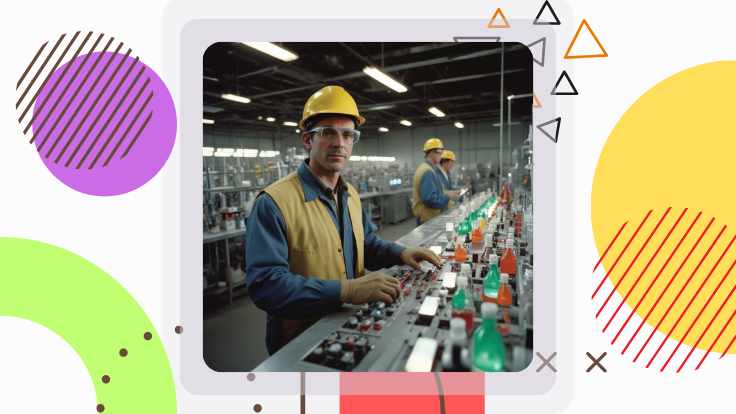Ever wondered how chemical manufacturing stands as a cornerstone of global industry, backing sectors like pharmaceuticals, petrochemicals, agrochemicals, and others? At its heart lies the role of the Chemical Process Engineer, a pivotal figure responsible for optimizing processes, ensuring safety, and driving innovation. This blog explores the critical responsibilities of Chemical Process Engineers, the unique documentation challenges they face, and how a cutting-edge platform like Docsie can streamline their workflows. Additionally, we will share a real-world success story to demonstrate the transformative power of smart documentation.
Role of the Chemical Process Engineer in Chemical Manufacturing
Chemical Process Engineers are instrumental in designing, implementing, and refining processes used in the production of chemicals. Their responsibilities span several key areas:
-
Process Design and Optimization: Engineers evaluate raw materials, reaction pathways, and equipment to design efficient and cost-effective processes. Their work directly impacts the scalability and profitability of manufacturing operations.
-
Safety and Compliance: Given the hazardous nature of many chemicals, ensuring safety is paramount. Engineers are tasked with adhering to stringent regulatory standards, implementing safety protocols, and conducting risk assessments.
-
Sustainability Initiatives: With the growing emphasis on green chemistry and sustainability, engineers are innovating ways to minimize waste, reduce emissions, and improve energy efficiency.
-
Quality Control and Troubleshooting: Ensuring product consistency requires rigorous quality checks and the ability to swiftly address production issues. Engineers work closely with quality assurance teams to maintain standards.
In essence, Chemical Process Engineers bridge the gap between theoretical chemistry and practical manufacturing, ensuring that processes are safe, efficient, and economically viable.
Challenges Related to Documentation for Chemical Process Engineers
Documentation is a critical component of a Chemical Process Engineer's role. However, the complexity and scope of their work introduce several challenges:
-
Managing Technical Complexity: Processes in chemical manufacturing often involve intricate reaction mechanisms, detailed equipment specifications, and multi-variable analyses. Documenting these complexities in a clear and structured manner is a significant challenge.
-
Compliance and Regulatory Requirements: The chemical industry is highly regulated, with strict documentation requirements for safety protocols, environmental impact assessments, and quality standards. Non-compliance can lead to severe penalties.
-
Collaboration Across Departments: Engineers frequently collaborate with R&D, quality assurance, and production teams. Ensuring that all stakeholders have access to up-to-date and accurate documentation can be cumbersome.
-
Version Control Issues: With continuous improvements in processes, maintaining version control and tracking changes in documentation is critical yet time-consuming.
-
Knowledge Retention: As experienced engineers retire or move on, there's a risk of losing institutional knowledge if documentation is not comprehensive and accessible.
Solutions Offered by Docsie
Docsie provides a modern documentation platform tailored to address the challenges faced by Chemical Process Engineers. Here's how:

-
Simplified Documentation for Complex Processes: Docsie's user-friendly interface allows engineers to break down complex chemical processes into manageable modules. Rich text editors and visual aids like flowcharts and diagrams make it easier to convey intricate details.
-
Compliance-Friendly Templates: The platform offers customizable templates designed to meet industry standards for regulatory compliance. These templates help ensure that all required information is systematically documented.
-
Enhanced Collaboration Features: Docsie supports multi-user editing and real-time collaboration, enabling cross-departmental teams to work seamlessly on shared documents. Notifications and version control features keep everyone aligned.
-
Automated Version Control: With Docsie, every change is automatically tracked, ensuring that documentation is always up-to-date. Historical versions are easily accessible for reference or audits.
-
Knowledge Management and Retention: Docsie acts as a centralized repository for all documentation, making it easy to store, search, and retrieve critical information. This ensures continuity and accessibility of institutional knowledge.
-
Multi-Language Support: For global teams, Docsie offers multi-language capabilities, making documentation accessible to diverse stakeholders.
Customer Success Story
A mid-sized specialty chemicals manufacturer faced persistent documentation challenges. Their Chemical Process Engineers struggled with maintaining compliance documentation, collaborating across departments, and managing frequent updates to process workflows.
After implementing Docsie, the company achieved:
-
50% Reduction in Documentation Time: Engineers leveraged Docsie's templates and real-time collaboration tools to streamline the creation and updating of documents.
-
Improved Compliance: The platform's regulatory-focused templates ensured that all safety and environmental documentation met industry standards.
-
Enhanced Collaboration: Cross-departmental teams could simultaneously edit and review documents, reducing miscommunications and delays.
-
Knowledge Retention: With all process documentation stored in Docsie, the company safeguarded critical knowledge, even as senior engineers retired.
The implementation not only boosted efficiency but also enhanced the company's ability to scale operations without being hindered by documentation bottlenecks.
Conclusion
Chemical Process Engineers play an indispensable role in the chemical manufacturing industry, ensuring that processes are safe, efficient, and compliant. However, the complexity of their work brings unique documentation challenges that can hinder productivity and innovation.
Docsie emerges as a game-changer, offering intuitive, compliant, and collaborative solutions to these challenges. By simplifying documentation, ensuring compliance, and preserving institutional knowledge, Docsie empowers engineers to focus on what they do best innovating and optimizing chemical processes.
For organizations seeking to enhance their documentation practices and drive operational efficiency, Docsie is the ultimate partner. Ready to transform your documentation workflows? Explore Docsie today.

